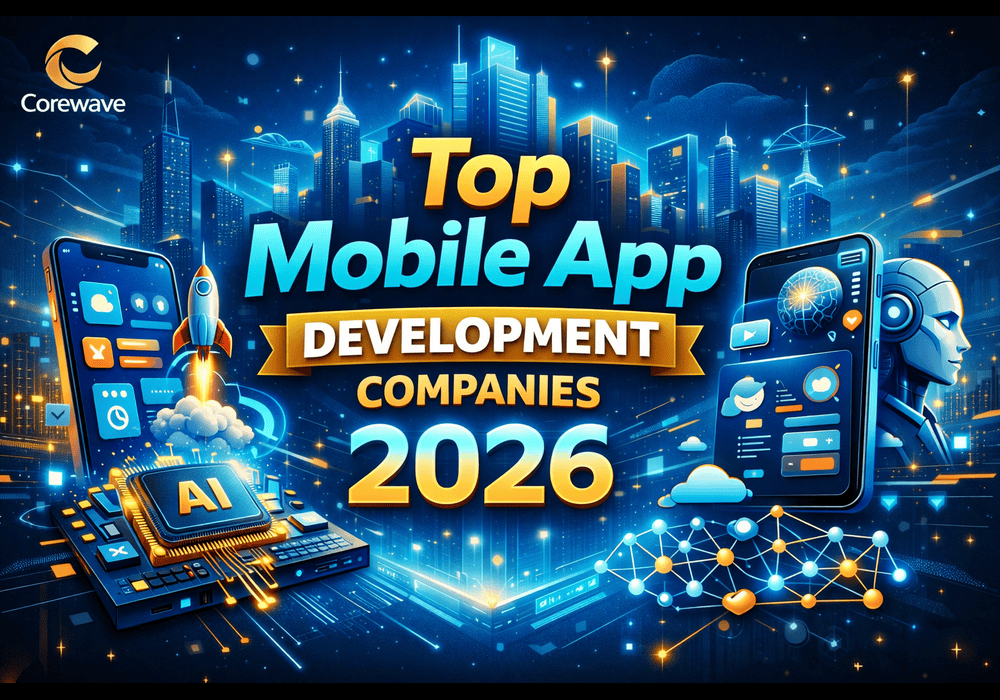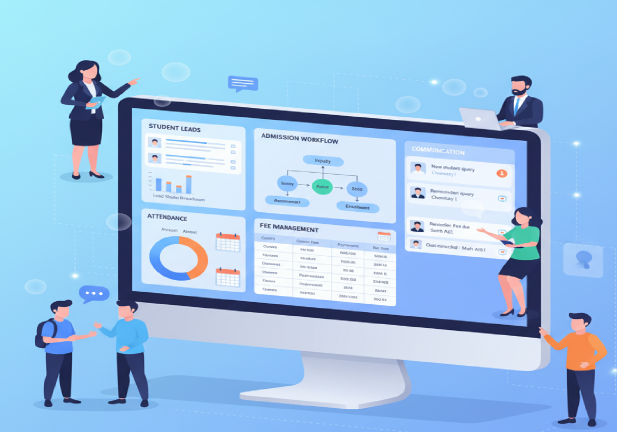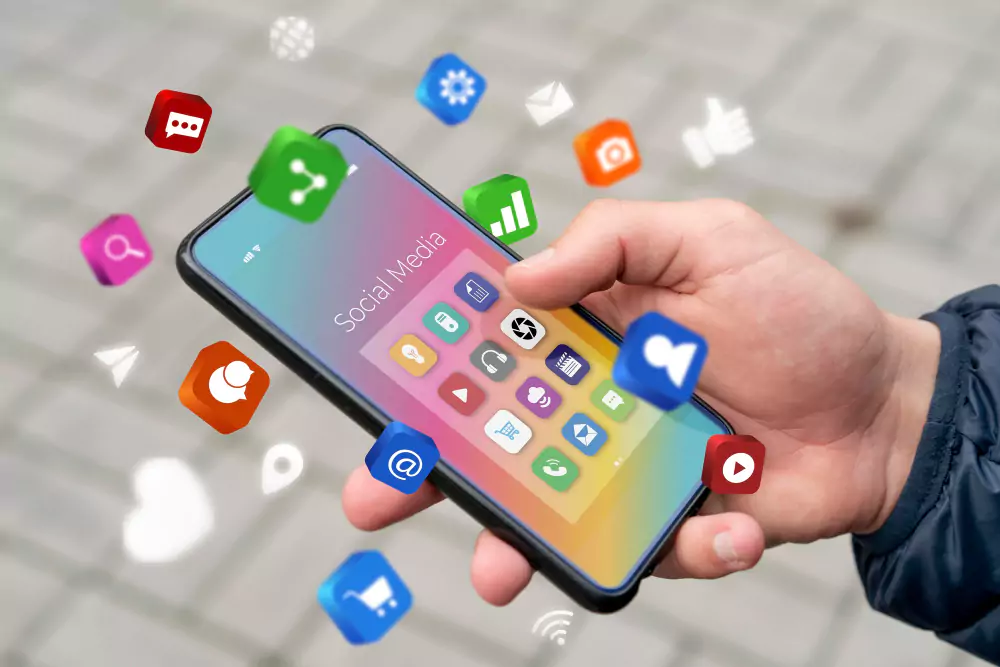In the modern digital landscape, mobile applications have gained immense prominence, presenting a lucrative opportunity for entrepreneurs and business leaders to invest in this realm. In this era defined by digital innovation, mobile apps offer a platform to deliver optimal services to customers. The influence of mobile technology has grown substantially and continues to evolve, revolutionizing communication, work, information access, and entertainment. However, an integral component of mobile devices plays a pivotal role in facilitating these functionalities – mobile applications. Concealed within the small icons that grace our screens lies a complex process.
This article will delve into the process of mobile app development and its essence in todays context.
Why build an application?
Mobile applications have become an indispensable asset, especially for businesses, including fledgling startups. Their significance lies in the pivotal role they play, extending even to smaller enterprises. The integration of a mobile app presents a competitive edge that permits businesses to broaden their outreach substantially. Through such applications, brands can forge connections with individuals spanning across the nation, leveraging the platform to market and vend their offerings. This dissemination can take place through well-established avenues like the App Store or Play Store, contingent on the brands stature and financial resources.
In the contemporary market landscape, consumer preferences emphasize personalization and convenience, a landscape where mobile apps emerge as a prime solution. Brands that manage to deliver personalized encounters via their apps cultivate potent brand equity, fostering enhanced customer allegiance. Concurrently, the utility of apps transcends mere interaction; they emerge as veritable conduits for data acquisition. This reservoir of information holds immense value, offering insights into the behaviors and inclinations of the target demographic, which in turn refines the contours of marketing strategies. The judicious employment of suitable tools can indeed yield remarkable marketing outcomes.
The multifaceted role of mobile apps is further underscored by their contribution to augmenting engagement metrics, catalyzing revenue streams, and heightening brand recognition. The discernment of user interaction patterns empowers brands to unlock augmented returns on investment (ROI) and prolong customer patronage, thereby boosting customer lifetime value. This facet is intrinsically linked to segmented targeting, a mechanism that segments user bases into discrete categories, tailoring data acquisition to align with these distinctions, thereby elevating the efficacy of personalized content delivery. Whats more, the utility of apps seamlessly extends to the marketing domain, affording marketers direct access to user insights. This repository of user-generated data equips marketers to refine and amplify their promotional endeavors and campaigns. Compared to conventional marketing conduits, mobile apps provide an avenue for channeling bespoke messages and content, thereby markedly amplifying the efficacy of marketing initiatives.
Types of Mobile App Development
- Native App Development
The specialized crafting and design of applications tailored exclusively for either the Android or iOS platforms. This intricate process mandates the adept utilization of platform-specific programming languages such as Swift or Objective-C for iOS and Java or Kotlin for Android. These languages operate in tandem with dedicated development tools. While native apps boast commendable performance benchmarks, their development demands discrete efforts for each platform, reflecting their intrinsic nature.
- Cross-platform App Development
Empowers the creation of a singular application that can seamlessly extend its reach to both Android and iOS domains. This approach yields the advantage of code reusability, thereby curbing development costs and broadening the scope of the audience. Nevertheless, it introduces the challenge of accommodating divergent nuances in iOS and Android app design, potential delays in-app updates, and plausible trade-offs in app quality.
- Progressive Web Apps (PWAs)
Particularly among businesses seeking to extend their presence beyond the confines of app stores. These apps leverage contemporary web technologies, even functioning offline, and offer the additional advantage of delivering push notifications, thereby enriching overall user engagement.
- Hybrid App Development
Adopts a distinctive stance, relying on web views and the amalgamation of CSS, HTML, and Javascript. Subsequently, these amalgamated elements are encapsulated within native app frameworks through tools such as Cordova. Hybrid apps extend a cost-effective alternative to their native counterparts, making them an attractive proposition for specific project scopes.
- Android App Development
The focus centers on serving the expansive Android user base. The Android app developers prioritize the creation of applications that seamlessly integrate user-friendliness, culminating in intuitive designs.
- iOS App Development
A distinct trajectory, with a premium user demographic as the target audience. The UI/UX developers devote their energies to crafting applications tailored to align with customer preferences, uniquely calibrated to fulfill distinctive business requisites. Corewave emerges as a premier iOS app development company in North East Delhi, setting a benchmark in this sphere.
- Flutter App Development
Brought to the fore an open-source framework that propels the construction of cross-platform applications. This framework, characterized by its nimble development pace and sophisticated user interface, has enabled the conception of exceptional designs. Flutters prowess as an efficient choice for crafting cross-platform applications is widely recognized, attributed to its growing popularity.
Process of App Development
To develop a mobile application there are major 8 steps that will help to develop an application that is defining your business and getting ROI. These steps are:
â— Define the goals and purpose
â— Research the target market
â— Decide the features of your application
â— UI/UX design
â— Hiring an app development Company
â— Build an MVP
â— Test and Launch your Application
â— Post Launch Activity
These are the steps that require the utmost attention and full importance when you are creating an application.
Who should you choose to develop an application?
When you are to develop an app, there are 3 options:
- Develop the app in-house
- Invest in an offshore agency
- Invest in a freelancer developer
Outsourcing software development is a prevalent choice, with companies worldwide opting for this route. When you choose to outsource app development services, you gain several key advantages. First, it offers cost-effectiveness; rates for app development can be notably higher in countries like the US and Australia (ranging from Rs. 8,000 to 12,000), whereas in nations like India, costs remain as low as Rs. 5,000 to 6,000. Second, outsourcing yields high-quality apps at affordable prices. Offshore firms often possess a better grasp of global markets, aiding businesses in expanding to new geographical locations. This strategy thus combines economical solutions with top-notch app quality, driving the preference for outsourcing in the software development arena.
Conclusion
Mobile apps play an essential role in contemporary business, serving as a vital link to a wider audience and nationwide product sales. Modern consumers are drawn to apps due to personalization and convenience, enhancing their significance for businesses in building a strong brand presence. By delivering value and gathering user data, brands can refine marketing approaches and attain remarkable outcomes. Apps drive heightened engagement, revenue, and brand recognition. Effective user engagement thrives through segmentation and tailored content. Moreover, apps furnish valuable user insights, granting direct access for more effective, personalized marketing campaigns than conventional methods.












